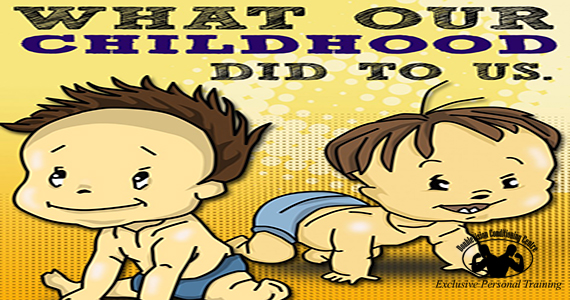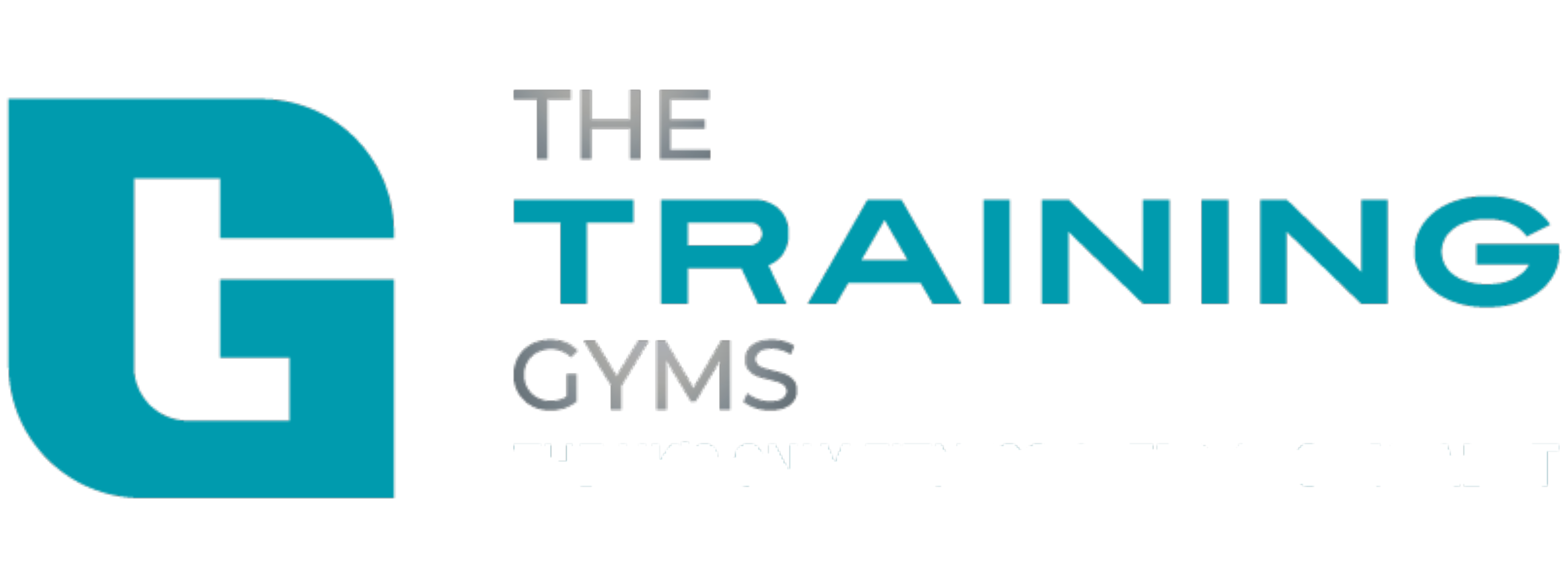
Highlights in the Podcast:
- Mark & Stephen Gray discuss what events in their childhood have made them lead the life they do.
- What habits they we “made” to develop?
- How you can develop health habits too.
- What part Pamela Anderson played in their future
- Who used to win in fights
Transcript:
Hello! and Welcome! To another episode of TheDVCC.com podcast. I’m Mark Gray.
Stephen: I’m Stephen.
Mark: So, I just want to thank everybody again for the great feedback and all the comments that the people are making are really helpful. So, always feel that you can comment and you know, and even if you disagree with any points we ever make do comment below these podcasts and our Facebook page in our blog TheDVCC.com blog. Because it really helps and it create discussions and then also, if you have any questions that can be perhaps a basis of another podcast in the future. So today, we want to talk about, what Steven?
Stephen: We decided we’re going to talk about what we think has shaped how we eat and how we’re able to eat healthily and the things we learned from actually as a child.
Mark: It’s more on lifestyle basically. We kind of always get asked when we started being into health, being into fitness. What do we do when we are children that kind of make us so into it and kind of love the subject, but love helping people lose weight and kind of get fit? And we’ve realized that it was all of the things that we did as a child that we weren’t thinking about at that time that could’ve instilled our habits and instilled the things that we hold high priority in this life.
Stephen: Well, that’s the works of these habit, we’re becoming more as we go through, we speak to more and more people… and we have more and more people lose weight or what have you. We’ve realized that habits are the things that really make a difference. So, the key word that you said were the habits that we learned when we were young that allowed us to live a healthy way.
Mark: And that’s interesting because when you look at us we are 30, but look 21 with slightly less hair, but we’re in better shape now than when we were 20, 21, 25, whatever. That’s very rare, I mean I looked at the guys that were at our age in school, that were into sports and because they weren’t into habit, they didn’t have the healthy habits instilled in them. They might have played sports in school, but work life got in the way, and they seem have fell out from that sport of that kind of healthy living because it was not a habit and that’s the point. Whereas, because of what we did as children, the habits were instilled in us and no matter what happened, we’re being busy or work life whatever, we’ve still maintain these habits and therefore, being able to maintain a healthy lifestyle.
Stephen: And interestingly enough, the guys that went off to make millions in London or whatever, now started realizing that they need to get their health back and I think that’s one of the things fundamentally we’re starting to realize is that there’s really no, nothing else is important as your health and so take looking after yourself. It doesn’t really much kind above that. Obviously family and things are very important but you need to be healthy to have to be able to look after your family for example. So I can’t think of many other things that are as important, well, there aren’t any other things as important as your health.
Mark: So, now, anyway, basically what we’re saying it was kind of all about healthy lifestyle we started when we were children. So, we have a lot to thank on mom. She’ll be flattered now; if she’s realizing that she setting us up with all these kinds of habit. I think she’ll say she was. But I really think she was. One of the first things I remember as a child is, we were active as twins, it’s two of us, and so it’s a bit more painful for our mother to bring us up. Because, obviously, when one’s not crying the other one is, and when one is happy, the other one is sad. But, I do remember that we always started the day with breakfast.
Stephen: Cooked breakfast.
Mark: Cooked breakfast you know not- occasionally, frosties, I’m going to admit; occasionally we did have frosties I think and that was like a massive treat. But we did jointly have a cooked breakfast. So, mom would cook us sausages and eggs, or whatever for breakfast. And to be fair, because we’re travelling a far bit, we live in, this is when we’re in middle school we live in Brampton and travel to Bedford and there wasn’t a bypass like there is now, so we were up pretty much every day at 6, definitely at 6 and it might have been even earlier and also to make sure we have our breakfast. So, we will always have a cooked breakfast. And that’s something that you know, without really realizing that it’s something that we’ve always done since. Because it’s just kind of a natural, you know, there is no getting into habit of cereals, just natural to have a cooked breakfast and it’s still is.
Stephen: It’s a habit for us now, and it should be a habit for you if you make it into a habit. So, that’s the thing and that’s something you want to take from this discussion is that, you can change your habits. Just maybe you’re not in a habit in the moment but you can change that habit.
Mark: Yeah, It’s not a matter of you’ve never done it, therefore you can’t. You can create that habit like what Steven says. But then also, if you have children it’s a good one to think of is that the habit you started getting to, you get your children doing it and they’re going to thank you for the rest of their life because it really does. It’s just what they will see as natural, they will do that for the rest of their life. Therefore, it will set them up.
Stephen: And so, there would also be times things will get in the way, but like Mark said we got into habit of getting up at the early so we were able to eat our breakfast. But, again, I remember having cold food on the car on the way to school sometimes, but we always have that sort of breakfast. Occasionally, very occasionally we may be without a treat of cereals, but I can count on the number of my hands.
Mark: And you know what? I get this, I do kind of hear this a far bit from friends actually, about “Oh my child won’t eat this, won’t eat that “, to be honest, I don’t know whether this is going to get dessert free up for now, but we pretty much have no choice. Like mom would say, this is what you having for breakfast and that’s what we’re having for breakfast. I don’t remember ever being able to say to my mom, “look, I want a McDonald’s breakfast.” And she kind of go with that. That’s what parenting is. Well, you know, I guess you’ll disagree with me.
Stephen: I agree and we don’t have children you can say, that’s true. We’ve never have experienced that, that’s true. However, I do know what our mom did with us. That’s why we’re having discussions is that, we found now, to help us and look back and realize that it was our mom doing it for us that made the biggest difference. So, you can change your own personal habit though, you don’t have to have your habit to go when you’re younger, using our experience as a way to see how much easy are things are for us now is helpful. So, what’s the second thing those we…?
Mark: The kind of things that kind of follows on is that, we had breakfast first but it was a cooked breakfast, it was a whole meal. You know the whole ready meals and there’s syrup, breakfast vanillas, ready meals for dinner. I don’t recall having that, but also I think it was part to do with finance. So, you know, it’s obviously an expensive job having children, bringing them up and ready meals and things are more expensive and I always remember having a cooked home meal in the evening. That partly I am pretty sure was due to finance because it was more cost effective for a mother to cook the meal. It costs a lot less than buying; I don’t know it would’ve been five with our sister as well. Five kinds of ready meals or even three ready meals you know. But because of that, whole cooked meals were far healthier, because we ate far better; we don’t have any hydrogenated fats in a home cooked meal, but you do in these ready meals and apart from the fact that it was healthier. I also remember at a time when we could discuss the day. Discuss any problem or whatever, actually if we have issues as children or how the days have gone.
Stephen: But that was when I think was one of the keys being able to stay positive daily, that’s where it came from. Pleases to sit around dinner, discussing what we’ve done well that day, pretty positive. I don’t remember being much complaining about what had gone wrong; I remember saying what we achieved that day. So, I think that’s where it helps a lot in being able to stay positive and focus on what we achieved rather than what hasn’t gone well that day which a lot of people do and I know we discussed it before and I think it was the real key to keep focusing daily on what you’ve done well towards your goal to whatever. The positive behaviors you manage to do that day then you’ll be far more positive overall. I’m pretty sure that when we were doing that, we’re having that meal everyday that’s when we started first. We know we don’t live together now, but that habit of focusing on the positives for the day has been instilled to us.
Stephen: And that’s not to say that obviously everything in our day was positive. No, obviously we have situations when you’ve not experience great things as a child but, on that thing we don’t need to focus on, I think because my family didn’t focus on those negative things, we focus on the positive. I know that a lot of people will say, “You know, I have a terrible day, there’s just nothing positive on my day”, I challenge you, if you’re going to be able to find three positives, its three wins that you achieved in a day. It really can be as small as, I drank a liter of water, when before I only drank 500ml kind of thing. Okay? No matter how small they are as long as you focus on your positives. That’s the whole point.
Stephen: And if you really can’t… say, you can’t find those three wins a day. How about finding three things that you’re grateful for in your life? Three positive things you are grateful for.
Mark: Yeah, I guess that’s a good family bonding. It reinforces positive in your day. Go, because you see after evening meals you kind of heading towards bed, you sleep, you finished your day on a positive note. Therefore, you start the next day with a positive note.
Stephen: And so the lesson is not if we can have dinner together and do that. Obviously it’s not possible to a lot of people. But the point is you are focusing on what you’ve done positively that day.
Mark: Yeah, and we all know the positive people are far more; you want to be around with positive people a lot more.
Stephen: Yeah, and you react to things a lot more in a complete more positive way when you are feeling more comfortable positive about yourself. So, other thing seems to get better.
Mark: True. So what else can you remember from our childhood?
Stephen: I think being active daily, so the lesson being as being active as much as you can. I was speaking to a lady last week. We discussed what her new habit is, rather than taking a lift every day at work, she’s going to walk the stairs up and down. She’d done it religiously. I’m really proud of her actually because there’s been time when she goes out of her way not use the lift such as she’s going to a meeting or what have you, and she actively said; “Oh I have to back to my desk” then kind of went up and down the stairs. Funny, enough she manage to lose I think it’s’ 3 or 4 lbs amount of fats last week because she was really rigorously stuck on her habits. But I think we learn daily to be really as active we can. I remember running outside in the garden with a rugby ball running one on one.
Mark: We spent hours and hours in the garden running with each other with a rugby ball, because also we play rugby. We just used to run headlong to each other all day any day and to be fair, we have always known to be very good attackers despite actually being in school and being told that we’re too small to play proper rugby and we actually grew playing proper rugby, being active until to this day.
Mark: We spent hours and hours in the garden running with each other with a rugby ball, because also we play rugby. We just used to run headlong to each other all day any day and to be fair, we have always known to be very good attackers despite actually being in school and being told that we’re too small to play proper rugby and we actually grew playing proper rugby, being active until to this day.
Stephen: And there was that part…
Mark: There was that part that I someone said that we will not to tackle each other on the park, but still kind of got few knocked teeth and injuries.
Stephen: I’m pretty sure some of our scars come from that time anyway. Pretty sure!
Mark: Pretty sure! Yeah, anyway, being active that is the main thing and like I do remember doing those different sports. I think was a good thing for us. You know, we’re not forced down any one road, we just did all of them and chose rugby, chose rugby affectionately struck me out, but that was after we done all other sports. What can we take from that in terms of if someone is an adult.
Stephen: Just been trying different things really, isn’t it? It’s not …
Mark: The real thing that I get enjoyment from is that a lot of our clients have never done exercise. Like we say, have never … perhaps didn’t have these kind of good experiences of sport, like we’ve had. Therefore, put off exercise effectively for 20 years or maybe 14 hours or maybe never really exercised. But then, they come to the center and they really enjoyed it and it’s something that perhaps they would’ve loved to have done earlier but getting aback and exercising is never too late.
Stephen: That’s why we set up these Spartan Runs didn’t we? That people hope and I’m really excited about it. Pretty sure a lot of people that have never done anything like this. Spartan Run is basically a kind of like an obstacle run course over 5 km eventually different distances, over a mile with different obstacles. So, it’s quite fun something that a lot of people will never have tried or never have done and I’m really excited about that because like what you say, a lot of we trained didn’t necessarily do sports at school and things. Because I think the problem in school is, if you’re not in the very top then you’re tend to get left behind and people grown matured in age. So, I mean for us, we weren’t technically decent in rugby until we’re about 17 or 18, were we? And that was pretty late for school.
Mark: And also teachers, like you get some great teachers obviously in every school, but you also get some ones that perk people off. In our school there was. It’s no longer there but that put a lot of people off from doing sport. They put us off to be fair isn’t it? Just lucky that we had, perhaps each other I guess and our father. But yeah, I can 100% see that. Anyway I don’t know what I’m saying but yeah right.
Stephen: So, what were the other things that we’ll discuss? I think one of the main one was probably the fact we used to have a cheat meal on a Saturday night and that throughout the week will be eating really well, mom will be feeding us.
Mark: So, we have a cheat meal, right? But we didn’t know it was a cheat, so it wasn’t like specifically okay we’re going to eat lots of cracker on a Saturday night and we knew it a week. But, we just ate what is given, you know basically in the week. But on Saturday afternoon, evening, I think it was obviously because we were younger. So we don’t get to bed late, I think I’m kind of 4 or 5 You might remember, Baywatch, Gladiators, I think it was Gladiators and it might have been Baywatch afterwards and that was like a little sassy ritual and then we would have a chicken slice, chips and pretty much I think peas, in front of the TV. We were normally not allowed to eat in front of the TV. But actually, I’m going to do this with my children when I have some in the end. But, yeah that was our cheat mail we kind of looked forward to it in the week and we watched Baywatch, good ‘ol Pamela. And how about chicken slice. It was really nice. It really set me up like I loved those Saturday afternoons.
Stephen: You see, again, it’s just a habit of eating healthy throughout a week and then just have enough meal on a Saturday night. It’s just a habit which you can train yourself to do now and it’s far more rewarding than eating bad food choices greatly and every one we know done this in flats and things, they will say that it’s far more rewarding when you choose to eat it
Mark: You don’t enjoy it if you eat, because eating little bits of stuff that you know that is great for you that you want to achieve or whatever, you don’t enjoy it as much. I know if I have that chicken slice or whatever it was I’ll appreciate it 2 times in a week or one more time in the week. I think we’ll going to enjoy it as much. And I wouldn’t be talking about it now because it wouldn’t be a special occasion and I guess it’s all about experiencing occasions in life, things that you remember. So, anything I would have enjoyed it as much. I’m sure I probably asked my mom “You know mom I want this and you know, whatever, Wednesday night”, or “I want chips”, whatever. I wouldn’t be allowed then. If she had I wouldn’t think I’ll enjoy it as much as perhaps doing it on a Saturdays.
Stephen: I agree.
Mark: Fair point I believe. We’re just recounting our own experiences, we’re not necessarily saying, you know, this is raising up of children or anything. It’s just what has put us in good stead and you can only go by your experiences and I believe that the experiences we had will correct to set us up.
Stephen: Well from what we know now. These are the key things in living a healthier life and being able to use facts as well.
Mark: Yeah, exactly! Sure, like, to be fair on some of the stuff that we used to eat or wasn’t the best, knowing what we know now. But obviously you only know now, or you knew from your mother after her knowledge or whatever, 25 years ago. Exactly! So you can only do the best you can do. But it’s just a lot of that was what we tell clients to do in terms of eating and things, so we’re just lucky I guess. Oh no, we weren’t lucky because obviously our mother did research, I know she research a lot about growing boys especially twins a kind of a bit of painful scenario to have, because it’s two of us and she has to double up everything. So I know she did a pretty good effort into it. But it has helped us a lot, so, thank you mother if you ever listen to this.
Stephen: I bet she will be!
Mark: I bet she will be! To be fair! Yeah, I hope you got some points from there. I think that’s enough for us rambling on and that. Like I say do comment below, because it really help us to know your feedback whether you’re getting help from this, or your points. I do really enjoy discussing with you. You might think we’re completely off base but you’re wrong, you know it helps others when you have done your points.
Stephen: Please leave your comments and it will give us inspiration for the next podcast on what’s the thing you want us to talk about.
Mark: Cool, so, speak to you next week! Bye!
Stephen: Speak to you next week! Bye!






